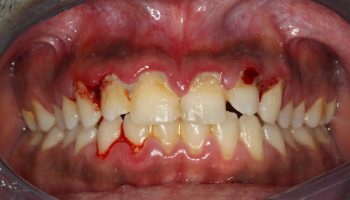What is sulindac
Sulindac is a nonsteroidal anti-inflammatory drug (NSAID). Sulindac works by reducing hormones that cause inflammation and pain in your body. Like other NSAIDs (nonsteroidal anti-inflammatory drugs), sulindac acts through inhibition of tissue cyclooxygenases (Cox-1 and Cox-2) which leads to a decrease in synthesis of proinflammatory prostaglandins, potent mediators of pain and inflammation. Sulindac has analgesic as well as antipyretic and antiinflammatory activities.
Sulindac is used to treat pain, tenderness, swelling, stiffness and inflammation caused by osteoarthritis (arthritis caused by a breakdown of the lining of the joints), rheumatoid arthritis (arthritis caused by swelling of the lining of the joints), ankylosing spondylitis (arthritis that mainly affects the spine). Sulindac also is used to treat pain in the shoulder caused by bursitis (inflammation of a fluid-filled sac in the shoulder joint) and tendinitis (inflammation of the tissue that connects muscle to bone). It is also used to relieve gouty arthritis (attacks of severe joint pain and swelling caused by a build-up of certain substances in the joints). Sulindac is in a class of medications called NSAIDs. It works by stopping the body’s production of a substance that causes pain, fever, and inflammation.
Sulindac is also sometimes used to reduce the number of polyps (abnormal growths) in the colon (large intestine) and rectum in patients with familial adenomatous polyposis (a condition in which hundreds or thousands of polyps form in the colon and cancer may develop). Talk to your doctor about the risks of using this medication for your condition.
Sulindac is sometimes prescribed for other uses; ask your doctor or pharmacist for more information.
Sulindac helps control arthritis pain but does not cure arthritis. If you are taking sulindac to treat arthritis pain, it may take 1 week or longer before you feel the full benefit of sulindac.
Sulindac comes as a tablet to be taken by mouth. Sulindac is usually taken with food twice a day. Take sulindac at around the same times each day. Follow the directions on your prescription label carefully, and ask your doctor or pharmacist to explain any part you do not understand. Take sulindac exactly as directed. Do not take more or less of it or take it more often than prescribed by your doctor.
People who take nonsteroidal anti-inflammatory medications (NSAIDs) (other than aspirin) such as sulindac may have a higher risk of having a heart attack or a stroke than people who do not take these medications. These events may happen without warning and may cause death. This risk may be higher for people who take NSAIDs for a long time. Do not take an NSAID such as sulindac if you have recently had a heart attack, unless directed to do so by your doctor. Tell your doctor if you or anyone in your family has or has ever had heart disease, a heart attack, or a stroke, if you smoke, and if you have or have ever had high cholesterol, high blood pressure, or diabetes. Get emergency medical help right away if you experience any of the following symptoms: chest pain, shortness of breath, weakness in one part or side of the body, or slurred speech.
If you will be undergoing a coronary artery bypass graft (CABG; a type of heart surgery), you should not take sulindac right before or right after the surgery.
NSAIDs such as sulindac may cause ulcers, bleeding, or holes in the stomach or intestine. These problems may develop at any time during treatment, may happen without warning symptoms, and may cause death. The risk may be higher for people who take NSAIDs for a long time, are older in age, have poor health, or drink large amounts of alcohol while you are taking sulindac. Tell your doctor if you take any of the following medications: anticoagulants (‘blood thinners’) such as warfarin (Coumadin, Jantoven); aspirin; other NSAIDs such as diflunisal, ibuprofen (Advil, Motrin) or naproxen (Aleve, Naprosyn), or oral steroids such as dexamethasone, methylprednisolone (Medrol), and prednisone (Rayos); selective serotonin reuptake inhibitors (SSRIs) such as citalopram (Celexa), fluoxetine (Prozac, Sarafem, Selfemra, in Symbyax), fluvoxamine (Luvox), paroxetine (Brisdelle, Paxil, Pexeva), and sertraline (Zoloft); or serotonin norepinephrine reuptake inhibitors (SNRIs) such as desvenlafaxine (Khedezla, Pristiq), duloxetine (Cymbalta), and venlafaxine (Effexor XR). Also tell your doctor if you have or have ever had ulcers or bleeding in your stomach or intestines, or other bleeding disorders. If you experience any of the following symptoms, stop taking sulindac and call your doctor: stomach pain, heartburn, vomiting a substance that is bloody or looks like coffee grounds, blood in the stool, or black and tarry stools.
Keep all appointments with your doctor and the laboratory. Your doctor will monitor your symptoms carefully and will probably order certain tests to check your body’s response to sulindac. Be sure to tell your doctor how you are feeling so that your doctor can prescribe the right amount of medication to treat your condition with the lowest risk of serious side effects.
Your doctor or pharmacist will give you the manufacturer’s patient information sheet (Medication Guide) when you begin treatment with sulindac and each time you refill your prescription. Read the information carefully and ask your doctor or pharmacist if you have any questions. You can also visit the Food and Drug Administration (FDA) website (https://www.fda.gov/Drugs/DrugSafety/ucm085729.htm) or the manufacturer’s website to obtain the Medication Guide.
Sulindac special precautions
Before taking sulindac:
- tell your doctor and pharmacist if you are allergic to sulindac, aspirin, or other NSAIDs such as ibuprofen (Advil, Motrin) and naproxen (Aleve, Naprosyn), or any other medications. Ask your pharmacist for a list of the inactive ingredients.
- tell your doctor and pharmacist what prescription and nonprescription medications, vitamins, nutritional supplements, and herbal products you are taking or plan to take. Be sure to mention the medications listed in the IMPORTANT WARNING section and any of the following: angiotensin-converting enzyme (ACE) inhibitors such as benazepril (Lotensin, in Lotrel), captopril, enalapril (Vasotec, in Vaseretic), fosinopril, lisinopril (in Zestoretic), moexipril (Univasc), perindopril (Aceon, in Prestalia), quinapril (Accupril, in Quinaretic), ramipril (Altace), and trandolapril (Mavik, in Tarka); angiotensin II receptor antagonists such as candesartan (Atacand , in Atacand HCT), eprosartan (Teveten), irbesartan (Avapro, in Avalide), losartan (Cozaar, in Hyzaar), olmesartan (Benicar, in Azor, in Benicar HCT, in Tribenzor), telmisartan (Micardis, in Twynsta), valsartan (in Exforge HCT); cyclosporine (Gengraf, Neoral, Sandimmune); medications by mouth for diabetes; diuretics (‘water pills’); lithium (Lithobid);methotrexate (Otrexup, Rasuvo, Trexall); and probenecid (Probalan).
- tell your doctor if you have or have ever had any of the conditions mentioned in the IMPORTANT WARNING section or asthma, especially if you also have frequent stuffed or runny nose or nasal polyps (swelling of the lining of the nose); heart failure; kidney stones; swelling of the hands, arms, feet, ankles, or lower legs; or liver or kidney disease.
- tell your doctor if you are pregnant, especially if you are in the last few months of your pregnancy, you plan to become pregnant, or you are breastfeeding. If you become pregnant while taking sulindac, call your doctor.
- if you are having surgery, including dental surgery, tell the doctor or dentist that you are taking sulindac.
Pediatric
Appropriate studies have not been performed on the relationship of age to the effects of sulindac in the pediatric population. Safety and efficacy have not been established.
Geriatric
Appropriate studies performed to date have not demonstrated geriatric-specific problems that would limit the usefulness of sulindac in the elderly. However, elderly patients may be more sensitive to the effects of sulindac than younger adults, and are more likely to have age-related kidney problems, which may require an adjustment in the dose for patients receiving sulindac.
Pregnancy
Pregnancy Category C: Animal studies have shown an adverse effect and there are no adequate studies in pregnant women OR no animal studies have been conducted and there are no adequate studies in pregnant women.
Using sulindac during late pregnancy can harm your unborn baby. If you think you have become pregnant while using the medicine, tell your doctor right away.
Breastfeeding
There are no adequate studies in women for determining infant risk when using this medication during breastfeeding. Weigh the potential benefits against the potential risks before taking this medication while breastfeeding.
Drug Interactions
Although certain medicines should not be used together at all, in other cases two different medicines may be used together even if an interaction might occur. In these cases, your doctor may want to change the dose, or other precautions may be necessary. When you are taking this medicine, it is especially important that your healthcare professional know if you are taking any of the medicines listed below. The following interactions have been selected on the basis of their potential significance and are not necessarily all-inclusive.
Using this medicine with any of the following medicines is not recommended. Your doctor may decide not to treat you with this medication or change some of the other medicines you take.
- Ketorolac
Using sulindac with any of the following medicines is usually not recommended, but may be required in some cases. If both medicines are prescribed together, your doctor may change the dose or how often you use one or both of the medicines.
- Abciximab
- Aceclofenac
- Acemetacin
- Acenocoumarol
- Amiloride
- Amineptine
- Amitriptyline
- Amitriptylinoxide
- Amoxapine
- Amtolmetin Guacil
- Anagrelide
- Apixaban
- Ardeparin
- Argatroban
- Aspirin
- Balsalazide
- Bemiparin
- Bendroflumethiazide
- Benzthiazide
- Betamethasone
- Betrixaban
- Bismuth Subsalicylate
- Bivalirudin
- Bromfenac
- Budesonide
- Bufexamac
- Bumetanide
- Cangrelor
- Celecoxib
- Certoparin
- Chlorothiazide
- Chlorthalidone
- Choline Magnesium Trisalicylate
- Choline Salicylate
- Cilostazol
- Citalopram
- Clomipramine
- Clonixin
- Clopamide
- Clopidogrel
- Cortisone
- Cyclopenthiazide
- Cyclosporine
- Dabigatran Etexilate
- Dalteparin
- Danaparoid
- Deflazacort
- Desipramine
- Desirudin
- Desmopressin
- Desvenlafaxine
- Dexamethasone
- Dexibuprofen
- Dexketoprofen
- Diazoxide
- Dibenzepin
- Diclofenac
- Diflunisal
- Digoxin
- Dipyridamole
- Dipyrone
- Dothiepin
- Doxepin
- Droxicam
- Duloxetine
- Edoxaban
- Enoxaparin
- Eplerenone
- Epoprostenol
- Eptifibatide
- Escitalopram
- Ethacrynic Acid
- Etodolac
- Etofenamate
- Etoricoxib
- Felbinac
- Fenoprofen
- Fepradinol
- Feprazone
- Feverfew
- Floctafenine
- Flufenamic Acid
- Fluocortolone
- Fluoxetine
- Flurbiprofen
- Fluvoxamine
- Fondaparinux
- Furosemide
- Ginkgo
- Gossypol
- Heparin
- Hydrochlorothiazide
- Hydrocortisone
- Hydroflumethiazide
- Ibuprofen
- Iloprost
- Imipramine
- Indapamide
- Indomethacin
- Inotersen
- Ketoprofen
- Lepirudin
- Levomilnacipran
- Lithium
- Lofepramine
- Lornoxicam
- Loxoprofen
- Lumiracoxib
- Magnesium Salicylate
- Meadowsweet
- Meclofenamate
- Mefenamic Acid
- Melitracen
- Meloxicam
- Mesalamine
- Methotrexate
- Methyclothiazide
- Methylprednisolone
- Metolazone
- Milnacipran
- Morniflumate
- Nabumetone
- Nadroparin
- Naproxen
- Nefazodone
- Nepafenac
- Niflumic Acid
- Nimesulide
- Nimesulide Beta Cyclodextrin
- Nortriptyline
- Olsalazine
- Opipramol
- Oxaprozin
- Oxyphenbutazone
- Paramethasone
- Parecoxib
- Parnaparin
- Paroxetine
- Pemetrexed
- Pentosan Polysulfate Sodium
- Pentoxifylline
- Phenindione
- Phenprocoumon
- Phenylbutazone
- Phenyl Salicylate
- Piketoprofen
- Piroxicam
- Polythiazide
- Pralatrexate
- Prasugrel
- Prednisolone
- Prednisone
- Proglumetacin
- Propyphenazone
- Proquazone
- Protein C
- Protriptyline
- Reboxetine
- Reviparin
- Rivaroxaban
- Rofecoxib
- Salicylamide
- Salicylic Acid
- Salsalate
- Sertraline
- Sibutramine
- Sodium Salicylate
- Spironolactone
- Sulfasalazine
- Sulindac
- Tacrolimus
- Tenofovir Disoproxil Fumarate
- Tenoxicam
- Tianeptine
- Tiaprofenic Acid
- Ticagrelor
- Ticlopidine
- Tinzaparin
- Tirofiban
- Tolfenamic Acid
- Tolmetin
- Torsemide
- Treprostinil
- Triamterene
- Trichlormethiazide
- Trimipramine
- Trolamine Salicylate
- Valdecoxib
- Venlafaxine
- Vilazodone
- Vorapaxar
- Vortioxetine
- Warfarin
- Xipamide
Using sulindac with any of the following medicines may cause an increased risk of certain side effects, but using both drugs may be the best treatment for you. If both medicines are prescribed together, your doctor may change the dose or how often you use one or both of the medicines.
- Acebutolol
- Alacepril
- Atenolol
- Azilsartan
- Azilsartan Medoxomil
- Benazepril
- Betaxolol
- Bisoprolol
- Candesartan Cilexetil
- Captopril
- Carteolol
- Carvedilol
- Celiprolol
- Dicumarol
- Enalapril
- Enalaprilat
- Eprosartan
- Esmolol
- Fosinopril
- Irbesartan
- Labetalol
- Levobunolol
- Lisinopril
- Losartan
- Metipranolol
- Metoprolol
- Moexipril
- Nadolol
- Nebivolol
- Olmesartan Medoxomil
- Oxprenolol
- Penbutolol
- Perindopril Erbumine
- Pindolol
- Practolol
- Propranolol
- Quinapril
- Ramipril
- Sotalol
- Spirapril
- Telmisartan
- Timolol
- Trandolapril
- Valsartan
Other Interactions
Certain medicines should not be used at or around the time of eating food or eating certain types of food since interactions may occur. Using alcohol or tobacco with certain medicines may also cause interactions to occur. Discuss with your healthcare professional the use of your medicine with food, alcohol, or tobacco.
Other Medical Problems
The presence of other medical problems may affect the use of sulindac. Make sure you tell your doctor if you have any other medical problems, especially:
- Anemia or
- Bleeding problems or
- Blood clots or
- Edema (fluid retention or body swelling) or
- Heart attack, history of or
- Heart disease (e.g., congestive heart failure) or
- Hypertension (high blood pressure) or
- Kidney disease (e.g., kidney stones), history of or
- Liver disease (e.g., hepatitis) or
- Pancreatitis (inflammation of the pancreas) or
- Stomach ulcers or intestinal bleeding, history of or
- Stroke, history of—Use with caution. May make these conditions worse.
- Aspirin-sensitive asthma or
- Aspirin sensitivity, history of—Should not be used in patients with these conditions.
- Heart surgery (e.g., coronary artery bypass graft [CABG])—Should not be used to relieve pain right before or after the surgery.
- Systemic lupus erythematosus (SLE)—May cause side effects to become worse.
Sulindac uses
Sulindac is used to treat pain, tenderness, swelling, stiffness and inflammation caused by osteoarthritis (arthritis caused by a breakdown of the lining of the joints), rheumatoid arthritis (arthritis caused by swelling of the lining of the joints), ankylosing spondylitis (arthritis that mainly affects the spine). Sulindac also is used to treat pain in the shoulder caused by bursitis (inflammation of a fluid-filled sac in the shoulder joint) and tendinitis (inflammation of the tissue that connects muscle to bone). It is also used to relieve gouty arthritis (attacks of severe joint pain and swelling caused by a build-up of certain substances in the joints). Sulindac is in a class of medications called NSAIDs. It works by stopping the body’s production of a substance that causes pain, fever, and inflammation.
Sulindac is also sometimes used to reduce the number of polyps (abnormal growths) in the colon (large intestine) and rectum in patients with familial adenomatous polyposis (a condition in which hundreds or thousands of polyps form in the colon and cancer may develop). Talk to your doctor about the risks of using this medication for your condition.
Sulindac is sometimes prescribed for other uses; ask your doctor or pharmacist for more information.
Sulindac dosage
For safe and effective use of sulindac, do not take more of it, do not take it more often, and do not take it for a longer time than ordered by your doctor. Taking too much of sulindac may increase the chance of unwanted effects, especially in elderly patients.
Sulindac should come with a medication guide. Read and follow these instructions carefully. Ask your doctor if you have any questions.
When used for severe or continuing arthritis, this medicine must be taken regularly as ordered by your doctor in order for it to help you. Sulindac usually begins to work within one week, but in severe cases up to two weeks or even longer may pass before you begin to feel better. Also, several weeks may pass before you feel the full effects of this medicine.
It is best to take sulindac with food. Also drink extra fluids so you will pass more urine while you are using this medicine. This will keep your kidneys working well and help prevent kidney problems.
The dose of sulindac will be different for different patients. Follow your doctor’s orders or the directions on the label. The following information includes only the average doses of sulindac. If your dose is different, do not change it unless your doctor tells you to do so.
The amount of sulindac that you take depends on the strength of the medicine. Also, the number of doses you take each day, the time allowed between doses, and the length of time you take sulindac depend on the medical problem for which you are using sulindac.
For oral dosage form (tablets):
- For osteoarthritis, rheumatoid arthritis, and ankylosing spondylitis:
- Adults—At first, 150 milligrams (mg) two times a day. Your doctor may adjust your dose as needed. However, the dose is usually not more than 400 mg per day.
- Children—Use and dose must be determined by your doctor.
- For acute gout, bursitis, or tendinitis:
- Adults—At first, 200 milligrams (mg) two times a day. After the pain is relieved, your doctor may direct you to take a lower dose for a while before treatment is stopped completely.
- Children—Use and dose must be determined by your doctor.
What should I do if I forget a dose?
Take the missed dose as soon as you remember it. However, if it is almost time for the next dose, skip the missed dose and continue your regular dosing schedule. Do not take a double dose to make up for a missed one.
Sulindac side effects
Sulindac may cause side effects. Tell your doctor if any of these symptoms are severe or do not go away:
- headache
- dizziness
- nervousness
- diarrhea
- constipation
- gas
- ringing in the ears
Some side effects can be serious. If you experience any of the following symptoms, or those mentioned in the IMPORTANT WARNING section, call your doctor immediately. Do not take any more sulindac until you speak to your doctor:
- unexplained weight gain
- shortness of breath or difficulty breathing
- swelling of the abdomen, feet, ankles, or lower legs
- fever
- chills
- cough
- sweating
- flushing
- muscle or joint pain
- chest pain
- blisters
- rash
- itching
- hives
- swelling of the eyes, face, lips, tongue, throat, arms, or hands
- difficulty swallowing
- hoarseness
- pale skin
- fast heartbeat
- excessive tiredness
- unusual bleeding or bruising
- lack of energy
- upset stomach
- loss of appetite
- pain in the upper right part of the stomach
- flu-like symptoms
- yellowing of the skin or eyes
- cloudy, discolored, or bloody urine
- back pain
- difficult or painful urination
- blurred vision or other problems with sight
Sulindac may cause other side effects. Call your doctor if you have any unusual problems while taking sulindac.
Sulindac overdose
Sulindac overdose occurs when someone takes too much of sulindac.
In case of overdose, call the poison control helpline at 1-800-222-1222 from anywhere in the United States. This hotline number will let you talk to experts in poisoning. They will give you further instructions.
Symptoms of sulindac overdose may include the following:
- loss of consciousness
- fainting
- dizziness
- blurred vision
- upset stomach
- decreased urination
Airways and lungs:
- Rapid breathing (hyperventilation)
- Slow, labored breathing
- Wheezing
Eyes, ears, nose, and throat:
- Ringing in the ears
- Blurred vision
- Sensitivity to light
Heart and blood:
- Low blood pressure (shock) and weakness
Nervous system:
- Agitation, confusion, incoherence (not understandable)
- Drowsiness or even coma (unresponsiveness)
- Convulsions
- Dizziness
- Headache (severe)
- Unsteadiness, problem solving
Skin:
- Rash
Stomach and intestines:
- Diarrhea
- Heartburn
- Nausea, vomiting (sometimes bloody)
- Stomach or abdominal pain
Other:
- Chills
What to expect at the emergency room
The health care provider will measure and monitor the person’s vital signs, including temperature, pulse, breathing rate, and blood pressure. Symptoms will be treated as appropriate. The person may receive:
- Activated charcoal
- Airway support, including oxygen, breathing tube through the mouth (intubation),and ventilator (breathing machine)
- Blood and urine tests
- Chest x-ray
- EKG (electrocardiogram, or heart tracing)
- Fluids through the vein (intravenous or IV)
- Laxative
- Medicines to treat symptoms
In the rare, more serious case, additional treatment may be needed. Most people will be discharged from the emergency department after a period of observation.
Sulindac overdose prognosis
Recovery is likely without complications, except in very large overdoses. Very large overdoses can be deadly.





